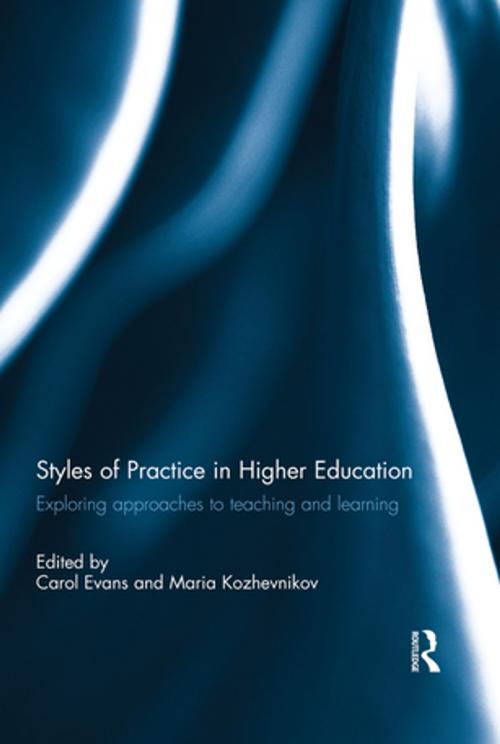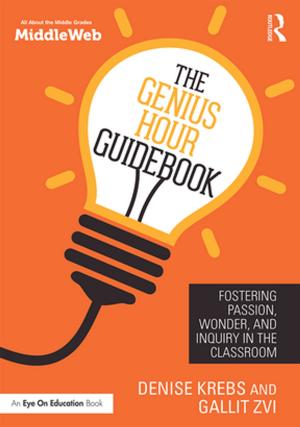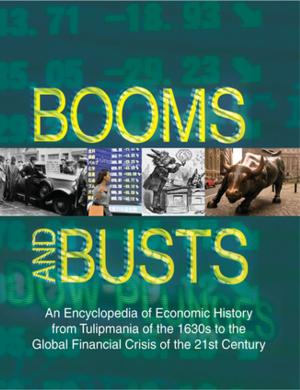Styles of Practice in Higher Education
Exploring approaches to teaching and learning
Nonfiction, Reference & Language, Education & Teaching, Higher Education| Author: | ISBN: | 9781134921782 | |
| Publisher: | Taylor and Francis | Publication: | April 8, 2016 |
| Imprint: | Routledge | Language: | English |
| Author: | |
| ISBN: | 9781134921782 |
| Publisher: | Taylor and Francis |
| Publication: | April 8, 2016 |
| Imprint: | Routledge |
| Language: | English |
This book highlights important discussions occurring within the styles field that have direct relevance for the development of effective twenty-first century learning environments. Styles research in this context is used as an umbrella term to encompass cognitive styles, learning styles, and approaches to learning, as well as student and teacher beliefs and conceptions of learning and teaching. Styles have the capacity to influence instruction in the ways that an educator chooses to design and deliver the curriculum. However, the potential of styles to inform teaching and learning, and vice-versa remains under-explored. Furthermore, the frequent misuse and misinterpretation of styles has led to over simplistic assumptions and practices including the labelling of learners as one style or another and the focus on matching mode of instruction to style of learner. A fundamental challenge, therefore, remains the dissemination of clear guidance on the effective ways of using styles research in practice; this is the core aim of the Education, Learning, Styles, Individual differences Network, whose members have contributed chapters to this book.
The volume provides a major contribution to the knowledge base on enhancing the application of styles research to practice within both educational and workplace settings and is of considerable value to those involved in the design and delivery of effective learning environments within higher education. Relationships between styles variables and other individual learning differences are considered across a range of subject domains (medicine, science, teacher education) and cultural contexts. The key themes discussed include the potential of constructivist environments to effect change in learning behaviours; the notion of deep approaches to learning; relationships between approaches to learning and self-regulated learning; the varied learning and teaching responses of students/teachers to specific constructivist interventions including the identification of specific patterns of responses that are characteristic of highlighted groups; relationships between conceptions and approaches to learning and teaching
This book was originally published as a special issue of Research Papers in Education.
This book highlights important discussions occurring within the styles field that have direct relevance for the development of effective twenty-first century learning environments. Styles research in this context is used as an umbrella term to encompass cognitive styles, learning styles, and approaches to learning, as well as student and teacher beliefs and conceptions of learning and teaching. Styles have the capacity to influence instruction in the ways that an educator chooses to design and deliver the curriculum. However, the potential of styles to inform teaching and learning, and vice-versa remains under-explored. Furthermore, the frequent misuse and misinterpretation of styles has led to over simplistic assumptions and practices including the labelling of learners as one style or another and the focus on matching mode of instruction to style of learner. A fundamental challenge, therefore, remains the dissemination of clear guidance on the effective ways of using styles research in practice; this is the core aim of the Education, Learning, Styles, Individual differences Network, whose members have contributed chapters to this book.
The volume provides a major contribution to the knowledge base on enhancing the application of styles research to practice within both educational and workplace settings and is of considerable value to those involved in the design and delivery of effective learning environments within higher education. Relationships between styles variables and other individual learning differences are considered across a range of subject domains (medicine, science, teacher education) and cultural contexts. The key themes discussed include the potential of constructivist environments to effect change in learning behaviours; the notion of deep approaches to learning; relationships between approaches to learning and self-regulated learning; the varied learning and teaching responses of students/teachers to specific constructivist interventions including the identification of specific patterns of responses that are characteristic of highlighted groups; relationships between conceptions and approaches to learning and teaching
This book was originally published as a special issue of Research Papers in Education.















